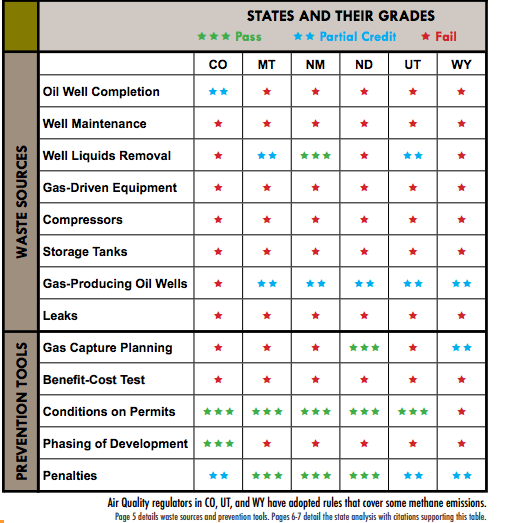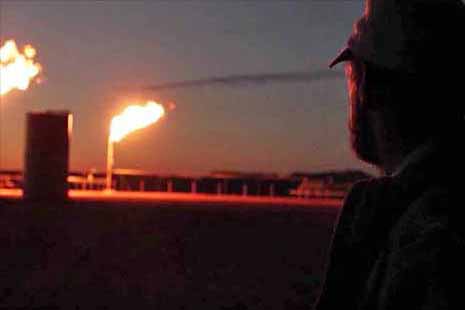A report released in January by WORC and Western Environmental Law Center (WELC) details how the proposed Bureau of Land Management (BLM) methane rule can fill the gaps in state methane waste regulation and achieve the government’s obligation to protect public trust resources for the American people. The report, Falling Short, investigates state oil and gas regulations in Colorado, North Dakota, New Mexico, Montana, Utah, and Wyoming related to reducing methane waste.
Report Helps Counter Industry Arguments
This report challenges industry arguments that the BLM methane rules are unnecessary. At BLM hearings in Dickinson, N.D., and Lakewood, Colo., industry lobbyists argued that the BLM methane rule as written were “duplicative” and that the BLM should leave the regulation of methane waste up to the states. North Dakota Republican Congressman Kevin Cramer called the rule “duplicative and burdensome” in a press release issued following the release of the draft BLM methane waste rule.
Falling Short, however, concludes that states with the most federal lands – Colorado, Montana, New Mexico, North Dakota, Utah, and Wyoming – do not have sufficient regulations to curb methane waste, and, as a result, a strong federal rule governing methane waste is needed.
Where Are States Falling Short?
Right now, states and the federal government work hand-in-hand to regulate methane waste on federal lands. To work hand-in-hand, state agencies and the BLM sign memorandum’s of understanding (MOUs) detailing how they will work together to reduce methane waste. Every state in the report falls short of regulating the waste of methane. Specifically, states do not have sufficient regulations to attack methane waste at its source – the equipment and processes that are often responsible for leaking or venting methane. State agencies do not regulate the following equipment: storage tanks, compressors, and gas producing oil-wells. The processes responsible for methane waste often unregulated by state agencies include liquids unloading, well completion, and well maintenance. Below is a table from the report listing areas where states fall short.

Though state oil and gas conservation commissions fall short of regulating methane waste, it must be noted that some states have strong air quality regulations that were not covered in the report. Specifically, the Colorado Air Quality Control Commission (AQCC) set strong air quality standards that address many sources of methane air pollution. AQCC’s rules, however, focus on air quality, not waste. This is an important distinction because the BLM and state oil and gas conservation commissions can only regulate the waste of resources, not air quality.
Show Your Support of the BLM Methane Rule
You can show support for the BLM methane rule by visiting WORC’s Action Page and sending the BLM a comment in favor of its proposed rule. Your supportive comment helps to counter the industry claims that the rule is unnecessary.
For more information, contact WORC Regional Organizer Scott Skokos at sskokos (at) worc.org.

